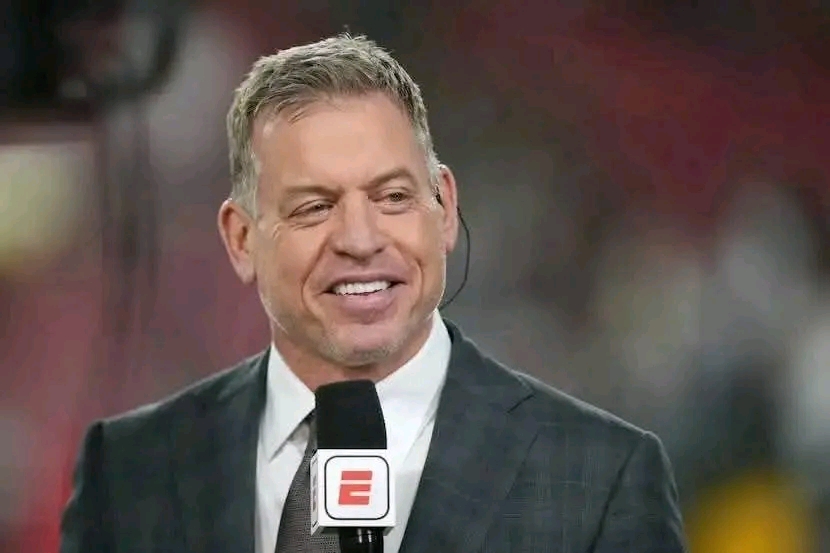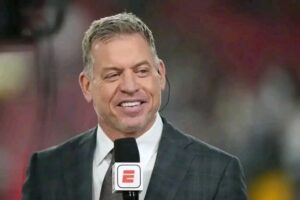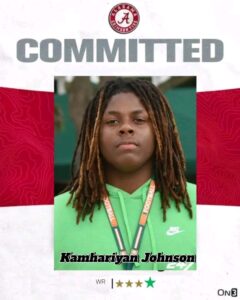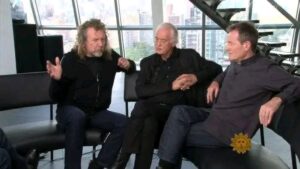
Troy Aikman Critiques Cowboys Ownership: “Coaching Role Lacks Empowerment Since Jimmy Johnson’s Departure

In a recent broadcast of Monday Night
Football, football legend Troy Aikman
did not hold back in his assessment of
the Dallas Cowboys’ management
structure. Aikman, who spent over a
decade as the team’s quarterback and is
widely regarded as one of the best to
ever play the position, articulated
concerns that resonate with many fans
and analysts alike. He pointed out a
fundamental issue within the
organization: the lack of empowerment
given to the head coach—a dilemma that
has lingered since the era of Jimmy
Johnson.
Aikman’s comments were pointed and
reflective of a deeper malaise that has
afflicted the Cowboys for years. He noted
that the ownership, specifically Jerry
Jones, does not fully empower the head
coach, thereby stifling the potential for
success. This lack of autonomy has been
a recurring theme in discussions about
the Cowboys, particularly as the
franchise has struggled to replicate its
past glory. Aikman emphasized that the
coaching position in Dallas, once a
coveted role, is no longer viewed in the
same light.
This sentiment is particularly significant
considering the historical context of the
team. During the late 1980s and early
1990s, under the leadership of Jimmy
Johnson, the Cowboys became a
powerhouse in the NFL. Johnson’s
approach to coaching—characterized by
a strong vision, strategic acumen, and
the ability to motivate players—
propelled the team to back-to-back Super
Bowl victories. However, his eventual
departure marked a turning point for the
franchise, signaling the onset of a period
characterized by instability and
inconsistency.
According to Aikman, the franchise’s success hinged on the collaborative dynamic between ownership and coaching, which has been sorely lacking in subsequent years. He argued that without the necessary support and autonomy, a head coach becomes limited in their ability to implement their philosophy and make crucial decisions. This critique highlights a broader issue facing sports franchises where ownership, while crucial for operational success, can often become an impediment to coaching effectiveness.
Fans and analysts alike have echoed Aikman’s sentiments, noting that the Cowboys have experienced a cycle of mediocrity over the past two decades. With each passing season, the team shows flashes of promise but ultimately falls short in critical moments. Whether it be through poor game management, questionable personnel decisions, or a lack of cohesive strategy, the common thread appears to be the friction between the coaching staff and the front office.
Aikman’s assertion that the Cowboys coaching job is no longer coveted also raises questions about the organizational culture. In the NFL, many aspiring coaches seek opportunities where they can cultivate their vision without being undermined by ownership. The perception that the Cowboys’ top position lacks the authority or support needed for success could deter potential candidates, thereby perpetuating the cycle of mediocrity.
Jerry Jones, who has been a dominant figure in the Cowboys’ organization since the late 1980s, has often been criticized for his hands-on approach. While his passion for the team and commitment to success are commendable, Aikman’s comments suggest that a reevaluation of this approach may be necessary. Empowering the head coach to make decisions, free from interference, could potentially lead to a more successful and cohesive team dynamic.
Ultimately, Aikman’s observations serve as a wake-up call for the Dallas Cowboys and their fans. Without a commitment to fostering an environment where coaches can thrive, the franchise risks remaining mired in mediocrity. As the NFL continues to evolve, the importance of strong leadership—both from ownership and the coaching staff—has never been more critical.
For fellow Cowboys supporters, Aikman’s candid assessment illuminates the path forward. It highlights the need for change within the organizational structure and calls for a renewed commitment to a collaborative approach that prioritizes success over control. Until Jerry Jones acknowledges and addresses these issues, the Cowboys may continue to find themselves stuck in a never-ending cycle of disappointment, as past legends like Aikman look on with hope for a brighter future.





